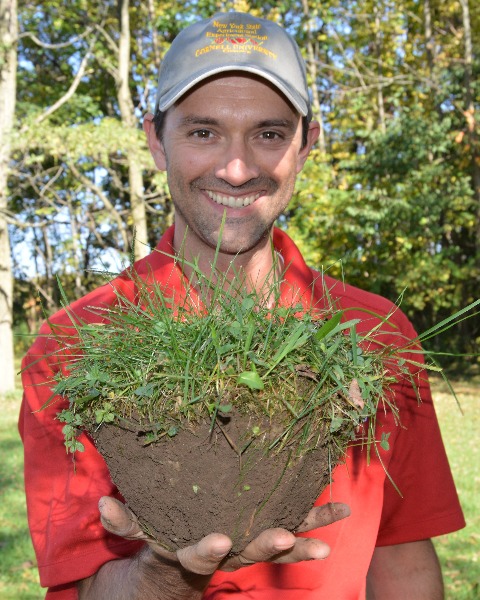Member Symposium
Acarology in Sustainable Agriculture On-Demand Presentations
Exploring the effects of soil mites on crop production
On-Demand

Ashley Jernigan
PhD Candidate
Cornell University, New York- MR
Matthew Ryan
Cornell University
Ithaca, New York - JT
John Tooker
Pennsylvania State University
University Park, Pennsylvania 
Kyle Wickings
Cornell University
Geneva, NY
Presenting Author(s)
Co-author(s)
Co-Author(s)
The role of soil-dwelling mites in soil functioning and health is of growing interest in sustainable farming systems. It is generally recognized that beneficial (non-pest) soil mites can impact crop production directly through their interactions with plants and indirectly through their effects on soil biological processing including soil organic matter decomposition and nutrient cycling. Yet, the relative contributions of soil mites to belowground ecological processes in different agricultural contexts and under different management practices are not fully understood. I conducted two field experiments to quantify the responses of soil microarthropod communities to crop rotation and cropping system management legacies. Using structural equation modeling I also tested the importance soil microarthropods in facilitating linkages between soil and crop health. Finally, I conducted a greenhouse experiment to determine how fertilizer composition moderates the impact of microarthropods on soil microbial activity and crop growth. Through these studies it is illustrated that the biological activity which contributes to soil health is nonlinear and varies greatly based on abiotic conditions. Specific soil fauna, including a family of predatory Mesostigmatid mites, can explain significant amounts of variation in crop biomass production. Further investigation suggests that microarthropod communities likely do not primarily impact crop biomass production through their direct interactions with the crop, but instead by their interactions with soil microbial communities.

